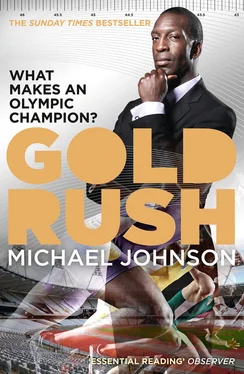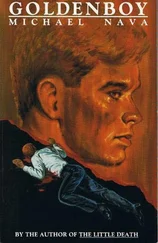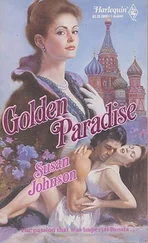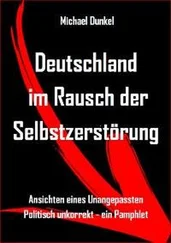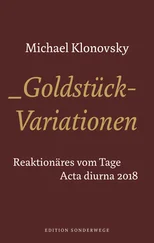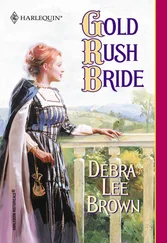As I sat in the meeting and thought about that I asked, ‘Do you guys think it might look silver?’ After silent thought and a minimum of debate, we agreed that a shoe that looked silver would be a problem, given our objective.
‘They should be gold,’ I thought to myself. Then Tobie Hatfield, a brilliant shoe designer who was the lead on the project and who remains a very good friend of mine today, looked at me and said, ‘What do you think about gold?’
I have never been a flashy person. I never wore a lot of jewellery, only a simple gold necklace which I bought with one of my first cheques after I started my professional career. I wore that necklace as something of a good luck charm during every single race in my career and stopped wearing it after I retired. And I also wore a simple gold hoop earring when running the 200 metres and a simple diamond stud when running the 400 metres. So while I don’t think anyone would describe me as flashy, they wouldn’t characterise my dress or my image as boring or drab. They both pretty much follow my personality. I’m confident but not brash. And while I like to perform efficiently and effectively, that certainly doesn’t mean that I’m conservative, either in my running or in my style.
The Nike design team left the meeting, saying that they would return in a month or so with a gold version of the shoe. I never thought once during that time that the shoes would get as much attention as they did or that people would remember them decades later. I never looked at them as a statement; nor did I think even once about the consequence of losing while wearing gold shoes. Failing to capitalise on the amazing opportunity to make Olympic history at home would far overshadow any embarrassment over wearing gold shoes during that attempt. The big question was not whether the shoes’ aesthetics would make history, but whether I would. I was about to find out.
RUNNING MY RACE
At ten minutes to the scheduled start time I went through my normal routine, setting my starting blocks and doing one practice start. That was all that was needed. In the 400 metres the start out of the blocks is not as important as in the 200 metres. Because of its greater length there are lots of decisions that have to be made during the race. The critical objective is to limit or if possible eliminate any mistakes. So, after my one practice start, I sat on the box indicating my lane number behind my blocks and ran though the race again in my mind as I waited.
As I sat there waiting for the start, I took the opportunity to look into the stands to get a sense of the atmosphere. The stadium was full, and it made me think for a brief moment about the fact that I was about to win my first Olympic gold medal. That, of course, made me think, ‘In order to do that, you can’t make any mistakes.’ So I turned my attention away from the crowd and back to the race, which was about to start.
The gun went off and I started to execute my race strategy, getting up to race pace as quickly as possible with a good, fast start. The first phase of the race went really well – I made no mistakes and nothing unexpected happened. Feeling comfortable on the back stretch, I tried to relax even more. I focused on Davian Clarke, two lanes outside of me in lane six, because he was normally a fast starter. He didn’t seem to be taking much out of the gap between himself and Ibrahim Ismail Muftah of Qatar outside of him. That signalled to me that the athletes outside of me were not running very fast. Then I started to try to get a feel for where Roger Black was behind me. I couldn’t look backwards since that would throw me off my own pace, so I started trying to see if I could feel his presence. When I did, I realised that I really wasn’t running as fast as I wanted to and I might be a bit off my desired pace.
Normally I would make up the time in the 200 to 300 phase by running harder than normal, but I knew I was in really good shape and I really hadn’t felt any fatigue at all at this point. So I adjusted immediately and at about 180 metres started to run at the speed and effort that I would normally move up to at 200 metres. I also decided to really double down on this strategy, and run even faster in this phase than originally planned. I passed the Jamaican Roxbert Martin, then his compatriot Davian Clarke. Ibrahim Ismail Muftah in lane seven dropped out of the race at about 275 metres. As I went around the curve I could only see Iwan Thomas from Great Britain out in lane eight. When I came out of the curve and out of the third phase of the race and went into the final phase with 100 metres to go, I was far ahead of the rest of the field. I knew that I would win this race big.
I continued to sprint down the track just trying to maintain my technique. Normally with 75 or so metres to go, a little bit of fatigue starts to set in. I never felt the least bit tired that day. Since I knew I was going to win the race for sure, I decided to go for the world record of 43.29. I gave it everything I had, crossed the finish line and immediately looked at the clock – 43.49 seconds, my third fastest time ever but still two tenths off the world record. I knew exactly where I had lost it. In the second phase from 75 metres to 150 metres I had relaxed far too much and I knew it.
I thought about that for a second, then realised I had accomplished what I wanted. I had won. I was the Olympic gold medallist for the 400 metres. I no longer had to fear finishing my career as one of the greatest sprinters never to win an individual Olympic gold medal. That brought a smile to my face. I turned around and saw Roger Black, from Great Britain, for whom I’d always had a lot of respect. The look on his face told me he had won the silver medal. We shook hands and congratulated one another.
On my victory lap I started thinking about the 200 metres. I wasn’t worried about how I would hold up. ‘I could go out right now and run the first round of the 200 metres,’ I told the press during my post-race interview. I wasn’t exaggerating. I felt that good.
Before the medal ceremony, I was still thinking about the 200 metres as I walked around the holding room. The 400 metres had seemed like a formality, something I had to do before I could get to the 200 metres and make history by becoming the first man to win both in an Olympics. Then Roger came in, his excitement evident. When I mentioned the 200 metres, he said, ‘Michael, savour this moment. This is special and you’ll want to remember this for the rest of your life.’
He was right. As we walked to the podium, I thought about my parents and brother and sisters in the stands and how much they had knowingly and in some cases unwittingly supported me. I was the youngest, and my three sisters and my brother would always chase me around and tease me. I had to get fast!
I turned and saw my family in the stands waving at me. As I stood on the top of the podium, Roger’s words crossed my mind again. I looked at the stadium and thought about the fact that I was in Atlanta, in my own country, about to receive my first individual Olympic gold medal. After the officials hung the gold medal around my neck and the US national anthem started to play, I kept thinking about the medal I had just received, where I was and what I had just accomplished. And though I try to be in control and private at all times, I allowed myself to let go and feel the joy, the pride and the relief. That’s when I started to cry. I knew that everyone in that stadium and watching me on television could see me, but I didn’t care.
I celebrated with my family and friends at a restaurant that night, but couldn’t really enjoy the occasion because I knew I wasn’t finished. I had the 200 metres coming up and my competitors were certainly not out partying less than two days before the start of an Olympic competition. So I returned to my hotel and climbed into bed.
Читать дальше
